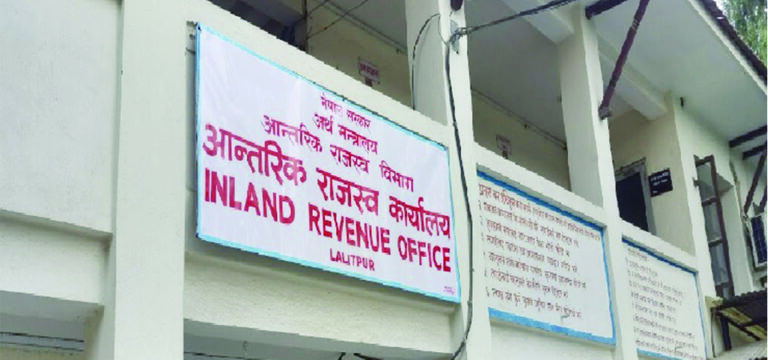
The government has brought various tax concession schemes for the businessmen.
While presenting budget for the fiscal year 2021/22 on Saturday, Finance Minister Bishnu Prasad Paudel said that the government had adopted the policy of giving 90 per cent discount to the taxpayers who have an annual turnover of up to Rs. 2 million in income in fiscal year 2020/21.
The budget has made an arrangement to give 75 per cent income tax exemption to the taxpayers with an annual turnover of Rs. 2 million to Rs. 5 million and 50 per cent to the taxpayers with an annual turnover of Rs. 5 million to Rs. 10 million.
Provision has been made to pay only 1 per cent income tax on the taxable income of hotels, travel, trekking, transport and air services, film industry and media houses which have been severely affected by COVID-19.
The period for transferring losses of those businesses has been extended to 10 years.
As per the Companies Act, 2063 and Private Firm Registration Act, 2014, the government has made an arrangement to waive the remaining fees and penalties for those companies and firms that have not submitted and renewed their annual statements up to the fiscal year 2018/19 if they pay 10 per cent of the details, fees and fines by mid-October, 2021.
As per the Income Tax Act, 2058, Value Added Tax Act, 2052 and Excise Act, 2058, the arrears of tax amount till mid-July 2019 and the interest thereon will be deducted from the fee, penalty and additional fee if it is filed by mid-December 2021.
The amount contributed to the COVID-19 prevention, control and treatment fund established by the government of Nepal, province and local governments in the fiscal year 2077/78 can be deducted from the calculation of the taxable income of that year.
An additional 25 per cent will be deducted when calculating taxable income from retirement. Provision has been made to deduct the value added tax paid on the purchase of diesel and LP gas used in the taxable business of the taxpayer.
Value added tax exemption has been given on transportation service, vehicle rental, cargo service, e-library service, deposit security fee, trekking and tour package, service fee for silo and silo use and issuance of certificate of origin.
Under the facility of bonded warehouse, the deadline for exporting bank guarantee has been extended till mid-April 2021 for the industries which could not export the raw materials imported by the export-oriented industries on time.
Customs duty, value added tax and excise duty on import, production and sale of oxygen gas, liquid oxygen, oxygen cylinder, oxygen concentrator and other vital materials and medicines have been exempted till mid-January 2022.
In order to increase the internal consumption of electricity and to promote the use of environmentally-friendly means of transport, the excise duty on the import of electric vehicles has been completely abolished and the customs duty has been significantly reduced, said the Finance Minister.
The customs duty on induction stoves has been reduced to 1 per cent while the excise duty on refrigerators, grinders, rice cookers, fans and other electrical appliances has been abolished.
The customs duty on infant milk has been reduced by 50 per cent to promote infant health and nutrition.
The value added tax has not been changed. Excise duty on liquor, beer, wine, cigarettes, tobacco and soft drinks has been increased.
The tax rate for small taxpayers has been kept unchanged and the transaction limit for submitting forecast income details has been increased from Rs. 2 million to Rs. 3 million.
The limit of business based on taxpayer’s turnover has been increased from Rs. 5 million to Rs. 10 million.
Provision has been made for non-taxation of income of collective investment funds.
Finance Minister Paudel said that for the protection of indigenous industries, the tariff rate on industrial raw materials should be at least one level lower than that of manufactured goods.
The government has exempted customs duty on equipment and parts used in tea, jute, film, pashmina, and hatchery industry and agriculture and nursery farms.
In order to increase production and employment by commercialising agriculture, the budget has given 50 per cent exemption on tax on commercial agricultural income.
“I have made an arrangement to give 20 per cent tax exemption on the income earned by selling the raw materials and auxiliary raw materials produced in the country to the special industry and only 10 per cent tax will be levied on the income earned by the special industry,” he said.
He said that the service recipients will get 10 per cent discount on the tax amount when they pay the tariff of goods and services through QR, debit card and credit card and other electronic means.
Source : THE RISING NEPAL,






